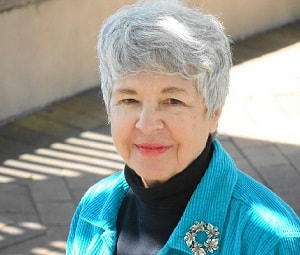 Pat Stoltey lives in Northern Colorado with her husband Bill, Sassy Dog, and Katie Cat. Her most recent novel, Wishing Caswell Dead (https://www.amazon.com/Wishing-Caswell-Dead-Patricia-Stoltey/dp/1432834401/), is a historical mystery set in1834 in east central Illinois, the farm country where Pat grew up. You can learn more about Pat and her other books at her website/blog (http://patriciastolteybooks.com/). She can also be found on Facebook (https://www.facebook.com/PatStoltey/, Twitter (https://twitter.com/PStoltey), Goodreads (https://www.goodreads.com/author/show/1105939.Patricia_Stoltey), and Google+ (https://plus.google.com/115494264819086899639). My writing career has been an up-and-down proposition over a lot of years. I was a working wife and mother from the time I left college until I finally retired at age 56. The writing I attempted during the earliest work years consisted of bad short stories and vignettes and even worse poetry. Oh, my goodness, the poetry is so awful. I kept all of it, though. I have one file box stuffed with the horrid things I typed up on my manual typewriter, then the electric typewriter. Many of the pages are yellow from age but the work is still easy to read. I can’t bear to throw any of it away because dipping into the box and reading my beginning scribbles helps me understand how far I’m come. A long, long way, believe me. In the early 80s, I had the chance to spend a couple of years in France while my husband was on a work assignment. While there, I attempted my very first novels. One eventually made it to audiotape but never print. It was good only for a niche market (truck drivers who rented books on tape from big truck stops). That second book, a romantic thriller, still sits on a shelf in my office, tempting me to return to the story and rewrite it from beginning to end. After that two-year break, I went back to work and attended occasional writing classes or conferences but never produced anything worthy of publication. The first few years after retirement, my husband and I traveled quite a lot. Even at 56, I thought I had plenty of time to follow those writing dreams. I kept travel diaries and attempted some travel articles but never wrote anything saleable. Finally, the wanderlust evaporated, and I tried to write a mystery. That was the genre I read most, so it seemed the right place to start. In 2003, I signed up for a novel writing class. In 2004 I braved an agent pitch session at Rocky Mountain Fiction Writers Colorado Gold Conference with The Prairie Grass Murders. The agent shot me down. Brutal! I’m a persistent cuss, though. I went back in 2005 and took a critique workshop with an editor from Five Star/Cengage. After a bit of rewriting based on her suggestions, I submitted the book and it was accepted. Now I have four novels published by Five Star. Believe me, along the way I’ve learned a few things. 1.Every minute you spend writing during your early years is good practice writing. Practice writing is critical to learn craft and style. It doesn’t matter whether you are writing poetry, essays, short stories, or novels (or letters or blog posts, for that matter). 2. You’ll learn something from every writing class, workshop, or writer’s conference you attend and every book on writing you read. Sometimes the information will conflict. Not everyone agrees on the how-to. That’s okay, because that’s the way it is in the publishing world. That said, there are basic rules of grammar, punctuation, and style that you must learn. Once learned, you may break rules if you dare…but you’ll know why you’re breaking them. 3. You must read lots of books in lots of genres to understand how published writers approach plot, character, and voice. Read bestsellers, but also read authors/books that you’ve never heard of before. See how prologues work or don’t work. Explore literary novels. Learn. 4. Never throw anything you’ve written away. Keep a printed copy of your finished novels to guard against failed or out-of-date digital storage devices. Keep separate files of revised drafts so you can return to an earlier version of your novel if you want. 5. Stay on top of changes in the publishing industry and new developments in self-publishing. Even if you don’t plan do-it-yourself, you need to know where to find those who will efficiently do it for you without breaking the bank. 6. Approach social media with caution. Make friends. Don’t get tangled up in discussions with political or cultural ideologues. When published, don’t oversell. 7. Learn patience. You must endure the submission procedure, pitch sessions, and the wait during a traditional publishing cycle (figure 18 to 24 months from contract signing to actual book release). 8. Learn perseverance. For those who want a traditional publisher, it may take years to get from a finished manuscript to a book contract. For those who want to self-publish, it may take forever and a day to make a few sales. 9. Develop a hide as thick as a crocodile so you can be strong when your work is criticized by peers in a writers’ group, editors, or readers. If the Goodreads or Amazon trolls find your published book and give you one star or a tacky review, ignore it. 10. It doesn’t matter if you write from an outline or wing it. It doesn’t matter if you write 2,500 words a day or 500 words a week. Do it your way. But remember, someday you’ll look back on your process and be satisfied…or wish you done it differently. Best to figure all that out now. Wishing Caswell Dead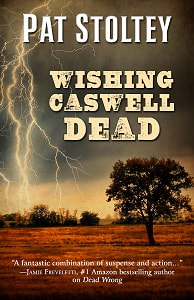 In the early 1800s in a village on the Illinois frontier, young Jo Mae Proud wishes her cruel brother dead. Forced into prostitution by Caswell, Jo Mae discovers she is pregnant and vows to escape. When Caswell is injured by a near lightning hit, he becomes more dangerous, and more hated. The flawed residents of the Village of Sangamon harbor many secrets. Caswell knows them all. Will he tell? Jo Mae runs away and eventually finds shelter with Fish, the old Kickapoo Indian who camps by the river. Wishing Caswell Dead is a historical mystery about the evil that hides within a village, one girl who is determined to save herself and her child, and a violent murder no one wants to solve. Where to Pre-Order Wishing Caswell Dead
8 Comments
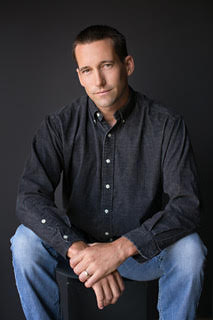 Joe is a television sportscaster turned novelist and speaker. Before shifting his focus to fiction he had dozens of articles published in a variety of small and mid-sized magazines and wrote a screenplay that placed 7th in the Writers Digest Competition. His debut novel, The Five Wishes of Mr. Murray McBride, is set for release on May 10. Learn more about him by visiting www.joesiple.com. Longing For The Golden Age by Joe Siple I recently returned from a trip to Barcelona, where a hundred-twenty years ago, artists of all stripes—painters, sculptors, writers—met at Els Quatre Gats, a little cafe in El Gotic, to sip espresso, discuss their art, and to create. Walking through the streets and cafes, the cobblestone roads and narrow alleys, I was struck by a sense of beauty and purity. More than anything, it was a sense of ease. This was a place where an artist could work and struggle, develop and grow. This was a place where the most idealistic, most romantic idea of what it means to be a writer still floated on the breeze, along with chocolate pastries and midday wine. The challenge artists faced was the only challenge that mattered: developing their chosen form to the very heights of their God-given potential. In no way did my walk through El Gotic make me consider publishing. I never pondered the best way to self-promote. Which contest I could enter for free and which required more of the money I was supposed to be making, not spending. I certainly don’t live in early-twentieth-century Barcelona. On this side of the pond, things were also simpler, not so long ago. Either you broke through that steel curtain of agents and acquisitions editors to be published by a large, New York-based house, or you pulled books off the shelves of Barnes and Noble, or your library, or Boarders (remember them!?!) and wished enough authors would die off so you could get your shot. Today, we’re faced with yet another version of the world of writing. And a lot of it seems to be about publishing as much as creating. Gone are the artists struggling in the cafes, with the highest goal being nothing more than the quality of their art. And gone are the days when the big New York publishers held complete sway over the American publishing industry. And like all sea-changes, this one has come with both good and bad. The good? Anyone with a computer and a dream can be published. The bad? Anyone with a computer and a dream can be published. If my preference is to be back in the “Golden Age” of Barcelona, 1904, my second choice would be the old way we did things here. A smoky back room filled with bearded men (and maybe a couple women) deciding the fate of each of us, based, we hoped, on the quality of our work. You might reasonably be asking, “Why in the name of Shakespeare’s Quill would you prefer that?” Simply put: Simplicity. I used to say, “I want to be a writer, not an entrepreneur.” What I meant was I longed for the days where artists were focused solely on their art, not how to get it distributed and how to convince people to buy it. Because that’s not art, and that’s not writing. That’s something completely different, and an aspect of our society I don’t particularly enjoy taking part in. I also worry about the quality of writing in the world getting “dumbed down,” which is inevitable when you go from 1% of the aspiring writer population getting published to nearly 100%, in a single generation. The truth is, writing is hard, and writing well is nearly impossible for most of us. And now we’re able to take a story that would have been nowhere near good enough to be published fifty years ago, and not only publish it, but make it look, aesthetically, almost identical to those that are worthy of publication. The dilemma this presents to readers is no small issue. And yet, here I am, about to have my debut novel published by a small publisher that wouldn’t have been able to exist fifty years ago. Meaning my book wouldn’t have been able to be published fifty years ago. Is this good, or is this bad? I’ve struggled with that question a lot recently. Because I don’t want to contribute to the “dumbing down.” I don’t want to shift my focus from writing to promoting. I honestly couldn’t care less if a single person visits my website. You want me to take a selfie at a book signing and post it on Facebook? Please tell me you’re kidding. But then there’s the other side. My story, on which I spent so many hours and emotions, will be shared with people who are looking for stories like mine. I’ll be able to use the experience as motivation to create more, hopefully even better stories. Most importantly, I can do it however I want to do it. If I don’t want to do social media, fine. No social media. If I don’t want to tell everyone to buy my book, who cares? I won’t do that either. My sales might be lackluster, but so are the sales of many people who do the things they’d rather not simply because they feel they have no choice. So I figure I’ll go with it. I’ll embrace this new world of writing and publishing—I’ll even enter into it. But I’ll do it my way. In a way that’s true to myself and allows me to sleep at night. And part of me, always, will long to be in 1904, elbow-to-elbow with other writers in a cafe in Barcelona. The Five Wishes of Dr. Murray McBride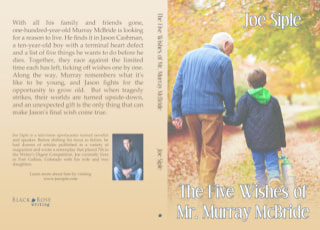 With all his family and friends gone, one-hundred-year-old Murray McBride is looking for a reason to live. He finds it in Jason Cashman, a ten-year-old boy with a terminal heart defect and a list of five things he wants to do before he dies. Together, they race against the limited time each has left, ticking off wishes one by one. Along the way, Murray remembers what it's like to be young, and Jason fights for the opportunity to grow old. But when tragedy strikes, their worlds are turned upside-down, and an unexpected gift is the only thing that can make Jason's final wish come true. Where to Pre-Order The Five Wishes of Dr. Murray McBride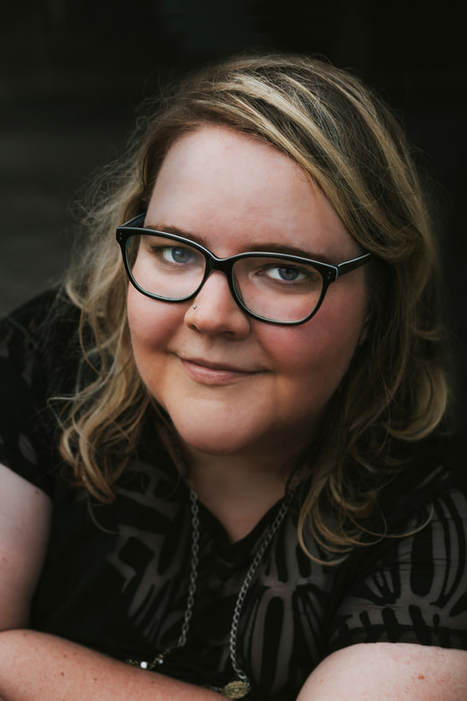 Kristen Lepionka is the author of the Roxane Weary mystery series, starting with The Last Place You Look (Minotaur Books, 2017). She grew up mostly in a public library and could often be found in the adult mystery section well before she was out of middle school. Her writing has been selected for Shotgun Honey, McSweeney's Internet Tendency, Grift, and Black Elephant. She lives in Columbus, Ohio, with her partner and two cats. Her next book, What You Want to See, releases in May. A question I get asked pretty often is, “Where do you get your ideas?” The answer is pretty disappointing, I think, but I usually say that I wish I knew. Because if I knew, I’d be able to go to that place, wherever it is, and get a new idea whenever I wanted--essentially, I could recreate inspiration on command. Ideas come from everywhere, and nowhere. My characters are everyone I’ve ever met, but at the same time, they aren’t based on specific people. Ideas are tricky things that come and go without rhyme or reason. Now, all of that is not to say that my writing process is mostly just sitting around, waiting for inspiration to strike. I’ve tried it and can report back that it absolutely doesn’t work. There’s a Jack London quote that I love--“You can't wait for inspiration. You have to go after it with a club.”--and I really think that’s true. So how do you go after ideas with a club if you don’t know where they come from in the first place? It’s all about knowing what excites you as a writer. Brainstorming is the metaphorical “club” here. When I need an idea, or when I have a baby idea that needs to be combined with something else before it can become a big, strong, book-length idea, I like to make scribbly lists until I come across something I like. I can’t generate the perfect idea on command, but I can usually get into the right neighborhood this way. A full-fledged idea often exists at the intersection of two or three seemingly disparate things--MacBeth meets outer space, for example. (Please, somebody, write that!) I consider time spent working on ideas as “writing” time, even if I am not actually typing out words that find their way into a manuscript. That brings me to another question I’m asked a lot: how long does it take to write a book? The answer, again, is complicated. It takes precisely as long as it takes. For me, the process of actively typing the words into a manuscript usually takes two to six months, but “writing” also involves hours of brainstorming, character sketches, daydreaming, procrastinating, research, redecorating my office (that’s a joke!), outlining, etc. I can only focus on typing one manuscript at a time, but I’m often kicking around ideas for several at once. And because I write a mystery series, my ideas for character arcs tend to overlap, affect each other when they change, etc. Basically, I’m always writing, even if I appear to be browsing office furniture online (again, a joke! Sort of). If there’s anything I’ve learned about being a writer, it’s that everyone’s process is different. What works for one writer won’t work at all for someone else, and that’s okay. It’s really a matter of figuring out what works for you and owning it. Lee Child, author of the brilliantly suspenseful Jack Reacher series, and whom I was lucky enough to meet at the Theakstons Old Peculier Crime Writing Festival in Harrogate, England, last summer, has a writing process that absolutely terrifies me: he starts a new book every September 1st with no outline and no plan--and he only writes one draft. He just sits down and writes it, and then it’s done. I think that’s absolutely marvelous. It would kill me, but I love it. On the flip side of that, I’ve read that Jeffrey Deaver pens super-detailed outlines before he starts writing--think 100+ pages of just outlining. This, too, would kill me. I’ve learned that I like to have a little bit of a plan, but not too much of a plan, and that it’s best not to fight it. You don’t have to be a certain kind of writer to be a “real” writer. Writers write, and it doesn’t matter how--just that you do it, and keep on doing it until you get where you want to go. The Last Place You Look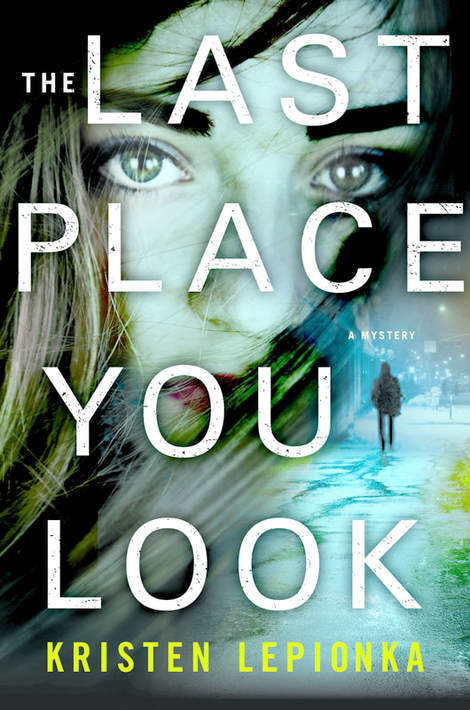 Nobody knows what happened to Sarah Cook. The beautiful blonde teenager disappeared fifteen years ago, the same night her parents were brutally murdered in their suburban Ohio home. Her boyfriend Brad Stockton―black and from the wrong side of the tracks―was convicted of the murders and is now on death row. Though he’s maintained his innocence all along, the clock is running out. His execution is only weeks away when his devoted sister insists she spied Sarah at an area gas station. Willing to try anything, she hires PI Roxane Weary to look at the case and see if she can locate Sarah. Brad might be in a bad way, but private investigator Roxane Weary isn’t doing so hot herself. Still reeling from the recent death of her cop father in the line of duty, her main way of dealing with her grief has been working as little and drinking as much as possible. But Roxane finds herself drawn in to the story of Sarah's vanishing act, especially when she links the disappearance to one of her father’s unsolved murder cases involving another teen girl. The stakes get higher as Roxane discovers that the two girls may not be the only beautiful blonde teenagers who’ve turned up missing or dead. As her investigation gets darker and darker, Roxane will have to risk everything to find the truth. Lives depend on her cracking this case―hers included. Check out Kristen on social media below: www.kristenlepionka.com twitter.com/kmlwrites instagram.com/kmlwrites facebook.com/kristenlepionka Where to Buy The Last Place You Look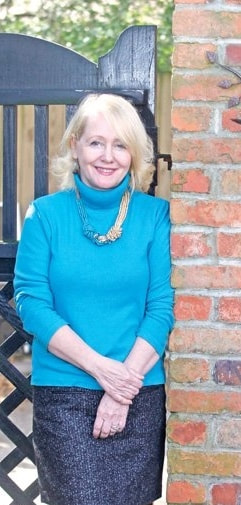 Karin Gillespie is the national-bestselling author of seven novels. She has also written for the New York Times, Washington Post and Writer Magazine. She has an MFA in creative writing from Converse College and lives in Augusta, Georgia. She writes a book column for the Augusta Chronicle, and a humor column for the Augusta Magazine and was a recent recipient of the Georgia Author of the Year award. I’ve been a novelist now for over sixteen years, and people occasionally ask me, what do you think it really takes to make it in this business? Most writer fret over whether they have enough talent. In my experience, talent is as cheap as bag of candy conversation hearts on Feb. 15. Talent is lovely, but if talent is coupled with unhealthy mind patterns, you won’t get very far in the writing world. Let’s begin with one of the biggest bugaboos on your way to success: Fear. What comes to mind when you hear the word artist? Starving? Ramen noodles? Have you ever heard this discouraging ditty: People who write novels, live in hovels? Society is constantly telling budding artists the same thing: Keep your day job. Being an artist is impractical. Only a talented few should dare to travel along the creative path. These messages come fast and thick, like propaganda. They twine their way into the artist’s mind, choking off all inspiration to write a short story or pen a poem. Spiritual teacher Allan Watts wrote a powerful lecture called, “‘What if Money Is No Object?” and encouraged people to pursue their creative dreams, saying they’ll eventually make money from it. He also chides society for not encouraging young people to go after what they desire. Watts said, “We’re bringing up children and educating them to live the same sort of lives we are living. In order that they may justify themselves and find satisfaction in life by bringing up their children to bring up their children to do the same thing, so it’s all retch, and no vomit. It never gets there. Too many artists are stalled before they even begin. Along with fear of censure comes fear of failure and fear of looking stupid. If any of these fears are keeping you from pursuing what you love, it might be useful to embark on an artistic recovery plan. I recommend reading and following the directives in The Artists Way. This book has helped thousands dislodge the limiting beliefs that keep them from their work. (Including myself; I wrote my first novel after reading it.) Elizabeth Gilbert says, “Without The Artist’s Way, there would have been no Eat, Pray, Love. Have you had some publishing successes and now consider yourself an expert? Not so fast. When my first novel was published, other writers were continually soliciting my advice, and I was tapped to lead workshops. After a while, I felt like I knew what I was doing, when the truth was I’d barely made a dent in the knowledge base. My false clarity cut off new insights at the knees, and I nearly lost my beginner’s mind. Beginner’s mind means you retain a wide-eyed openness and eagerness for a subject, and you don’t harden yourself with preconceptions. For instance, among writers there’s an ongoing debate between those who write organically (so called “pansters” because they write by the seat of their pants,) and those who write with an outline. Many people have their minds set in cement, and they cut themselves off from any information that deviates from their point-of-views. That’s a mistake. Artistic practice can teach you more than you could ever learn in a lifetime. Don’t be such an expert that you quit evolving. Speaking of lifelong learning, the other day I was reading Donald Maass’ Fire in Fiction, and he distinguishes between writers who are status seekers and storytellers. To succeed as a writer, you need to be the latter. As artists we often daydream about winning awards or creating high demand for our work, but a diet of success won’t sustain a lengthy career. In fact, more often, success gets in the way. A mind constantly focused on rewards tends to create work that reflects its limited state: cramped, derivative, stale. Readers call it “phoned-in” and can sense that the author’s attention is elsewhere. On the other hand, when you have a mind filled with love of craft and generosity to reader, these positive mind states infuse your writing and are bound to infect the reader. Sixteen years as a published writer and I can’t imagine any pastime more satisfying. Writing is like an account that earns compound interest, the more you deposit, the greater the riches you receive. Enid Bagnold said it beautifully: “Who wants to become a writer? And why? Because it’s the answer to everything. … It’s the streaming reason for living. To note, to pin down, to build up, to create, to be astonished at nothing, to cherish the oddities, to let nothing go down the drain, to make something, to make a great flower out of life, even if it’s a cactus.” Love Literary Style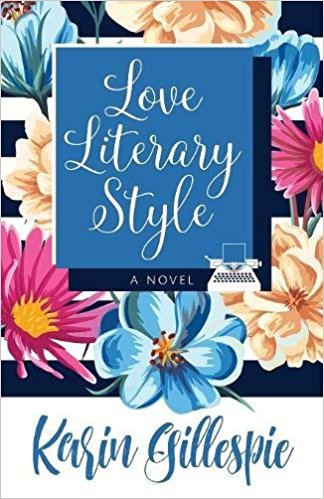 A stuffy lit professor and would-be novelist hooks up with a self-published romance writer from Decatur, Georgia who adores all flamingo-patterned attire. Literary Journal calls it, “Deceptively thought-provoking and addictive.” Check out Karin on Facebook or check out Karin's website Where to Buy Love Literary Style |
AuthorI'm generally pulled in a million different directions and I wouldn't trade it for the world. Here's a glimpse of my life - hope you enjoy it! And if there's a big lapse between posts, well, that's the way life goes in Amy's world. Archives
October 2022
Categories
All
|
|
Copyright 2024 by Amy Rivers. All rights reserved. |
 RSS Feed
RSS Feed